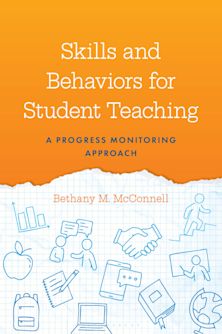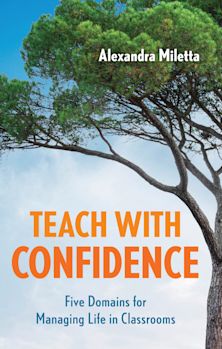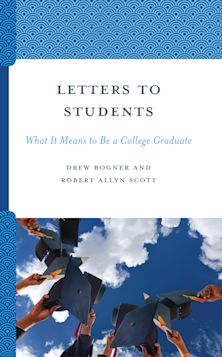- Home
- ACADEMIC
- Education
- Education - Other
- Literacy as a Moral Imperative
Literacy as a Moral Imperative
Facing the Challenges of a Pluralistic Society
- Textbook
Literacy as a Moral Imperative
Facing the Challenges of a Pluralistic Society
- Textbook
For information on how we process your data, read our Privacy Policy
Thank you. We will email you when this book is available to order
Buy from Bloomsbury eTextBooks
You are now leaving the Bloomsbury Publishing website. Your eBook purchase will be with our partner https://www.vitalsource.com.
Your credit card statement will show this purchase originating from VitalSource Technologies. They will also provide any technical assistance you might require.
You must sign in to add this item to your wishlist. Please sign in or create an account
Description
In this important new book on literacy and teaching practices, education scholar and former schoolteacher Rebecca Powell argues that the decisions we make about literacy in a pluralistic society are fundamentally moral ones, either supporting inequitable power relationships, or seeking to transform them. Powell explores the underlying ideological assumptions of “schooled literacy” and examines the ways teaching practices create tensions in the lives of students-tensions that often result in alienation and educational failure, particularly among those whose cultural knowledge and language tends to be marginalized in our nation's schools.
While primarily ground in critical theory, this volume also draws from multicultural and holistic perspectives in the teaching of written and oral language and addresses the link between whole language and critical pedagogy. Thus, the text is both theoretical and practical. Powell effectively argues that literacy instruction should encourage social responsibility and civic action, should enable students and teachers to understand the transformative potential of language, and should nurture a culture of compassion and care.
Table of Contents
Chapter 2 Conceptualizing Literacy
Chapter 3 “Schooled Literacy” As an Ideological Construct
Chapter 4 The Results of Schooled Literacy
Chapter 5 Realizing a Democratic Vision
Chapter 6 Promoting a Critical Literacy
Chapter 7 Toward a Transformative Vision
Chapter 8 Afterword: One Teacher's Journey
Product details
| Published | Sep 08 1999 |
|---|---|
| Format | Ebook (Epub & Mobi) |
| Edition | 1st |
| Extent | 168 |
| ISBN | 9781461638926 |
| Imprint | Rowman & Littlefield |
| Series | Culture and Education Series |
| Publisher | Bloomsbury Publishing |
About the contributors
Reviews
-
This book is quite stunning. Powell's thoroughgoing discussion of the non-neutrality of texts, skills, views of literacy, and instructional methods is clearly a tour de force. Through that discussion, Rebecca Powell invites us-with care, passion and grace-to consider how morality is infused with issues of hegemony and equity, and, therefore, how all aspects of literacy are both moral and political phenomena.
Carole Edeslky, Arizona State University
-
This is a welcome, refreshing, and intensely thoughtful examination of literacy. This book is especially needed during this time of standards, testing, and the reduction of literacy to the ability to decode sounds. Powell has provided a lucid and very well-grounded framework for helping teachers build a democratic literacy program that enables teachers and students to own literacy, rather than a program under which they are owned by it. Readers will find this book very inspiring!
Christine Sleeter
-
Makes a strong case for learning to teach critical literacy to students.
Journal of Adolescent & Adult Literacy
-
Rebecca Powell comes of age in her lovely book Literacy as a Moral Imperative. . . . Powell's appeal for a transformative methodology by school systems is laudatory.
Vincent R. McGrath, Mississippi State University, Educational Forum
-
The earnestness of language, the unashamed invocation of morality, and its sense of hope-all combine to make this book most satisfying.
College English
-
Literacy as a Moral Imperative offers powerful arguments intended to inform educators' hearts, heads, and hands-a rare feat for so scholarly a book. Powell shows us the limits of neo-conservative concerns for a moral literacy and displays remarkable opportunities available in more democratic praxis.
Patrick Shannon, Pennsylvania State University



































